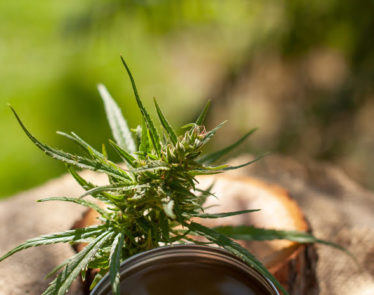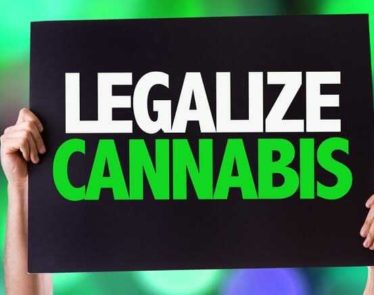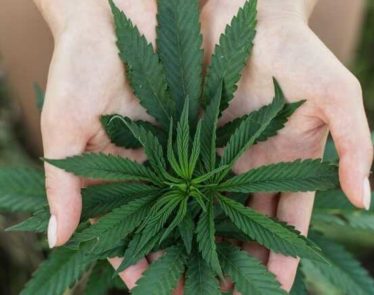
Just as the cannabis industry looks to be recovering from a summer of scandal, scares, and sinking stocks, another crisis creeps up to try to knock the wind from its sales. There is growing concern around the use of vapes, and the so-called vaping crisis reached a crescendo this week after the resignation of Juul's CEO, the launch of a criminal probe by the FDA, and hundreds of new cases emerging across the US.
Many cannabis companies in Canada have been banking on legalization 2.0, which will make pot derivatives such as vapes legal, to provide a massive boost to the industry when it comes into effect later this year. While it all sounds like doom and gloom, there are some important details that pot stock investors may not be getting. Lets's take a look at the broader picture.
What is the Vaping Crisis?
Reports of a mysterious lung illness related to vaping emerged over the summer, and as of September 27, 2019, the Centers for Disease Control and Prevention (CDC) reported that there have been “805 lung injury cases reported from 46 states and 1 U.S. territory,” as well as 12 confirmed deaths. As a result, the Trump administration issued a ban on all flavored e-cigarettes, which prompted the escalation into a 'vaping crisis.' Action is also being taken on a state level, with Massachusetts and Rhode Island banning the sale of vapes for four months.
Illicit 'Street Vapes' the Real Threat?
However, some people have argued that the rush to enact new restrictions may be causing regulators to miss the real problem. What most reports have missed is that the vast majority of these illnesses are as a consequence of using illicit 'street vapes,' which are unregulated and untested. Investigators in Illinois and Wisconsin found that 66% of patients surveyed had purchased their vapes from counterfeit brands.
Michelle Minton, a Senior Fellow at the Competitive Enterprise Institute, said, "What few of these reports have pointed out is that it seems most — if not all — of the hospitalizations were related, not to e-cigarettes, but illicit “street vapes.” If e-cigarettes are banned or restricted we can expect to see more stories like this as people increasingly turn to the black market." The CDC reasserted these claims and warned people not to buy vape products "off the street."
>> VFF Stock Unmoved as Joint Venture Begins Shipping to BC
How Has the Market Reacted?
While the exact cause of these vape related illnesses remains unknown, cannabis stocks are likely to be affected, and as some have a larger dependency on vape sales than others, you might want to avoid them. For example, KushCo Holdings (OTCQB:KSHB), a California-based company that distributes vaporizers, has seen its share price decline from $3.75 at the end of August to $1.48 as of September 30. The price had edged back to about $1.75 this week, but analysts at Seaport Global lowered revenue expectations for KushCo in 2020 by 14% as a result of the crisis.
KushCo did produce an investor presentation, however, emphasizing the dangers of illicit vapes. “We believe the vast majority of these cases are linked to untested vape devices purchased from illegal markets or street dealers,” the presentation stated. Vancouver vape company Vapen MJ Ventures (CSE:VAPN) (OTCQX:VAPNF) said that none of its products contain vitamin E acetate, the substance believed to be at the heart of the crisis, adding that “diluting and thickening agents” used in black-market products are not present in any of its offerings.
One major positive for the pot industry in the US is that the wholesale cannabis flower market remains unaffected by the crisis. The most recent data from Headset, a Seattle-based provider of data and analytics to the cannabis industry, shows that the share of consumers buying flower since the vaping crisis began has barely moved, with merely incremental changes in either direction in major markets such as California and Colorado.
Companies Taking a Long-Term View
Analysts have said it is imperative that the industry makes a proactive response by educating and informing consumers and regulators that the regulated products sold by legal cannabis operators are not the same as those being sold by the illicit market. Ultimately, legal vape distributors are hoping that the vaping crisis will raise awareness on the dangers of street vapes, and drive sales towards regulated premium products, but this all hinges on how well companies get the message across the consumers.
Tyrell Towle of MedPharm, a Colorado-based cannabis vape company, said “Sadly, people have been hurt or even killed and our approach is to express even more our motto, our beliefs, our mission statement, that we will always provide safe, clean and pure products for adults to consume," adding that his company have not seen any effect of the crisis on sales.
It is difficult to tell how the crisis will play out in the Canadian market, and companies need to take a forward approach to not only informing consumers but driving sales towards derivative alternatives such as edibles and infused beverages, all of which will become legal later this year.
Featured Image: DepositPhotos © marcbruxelle












